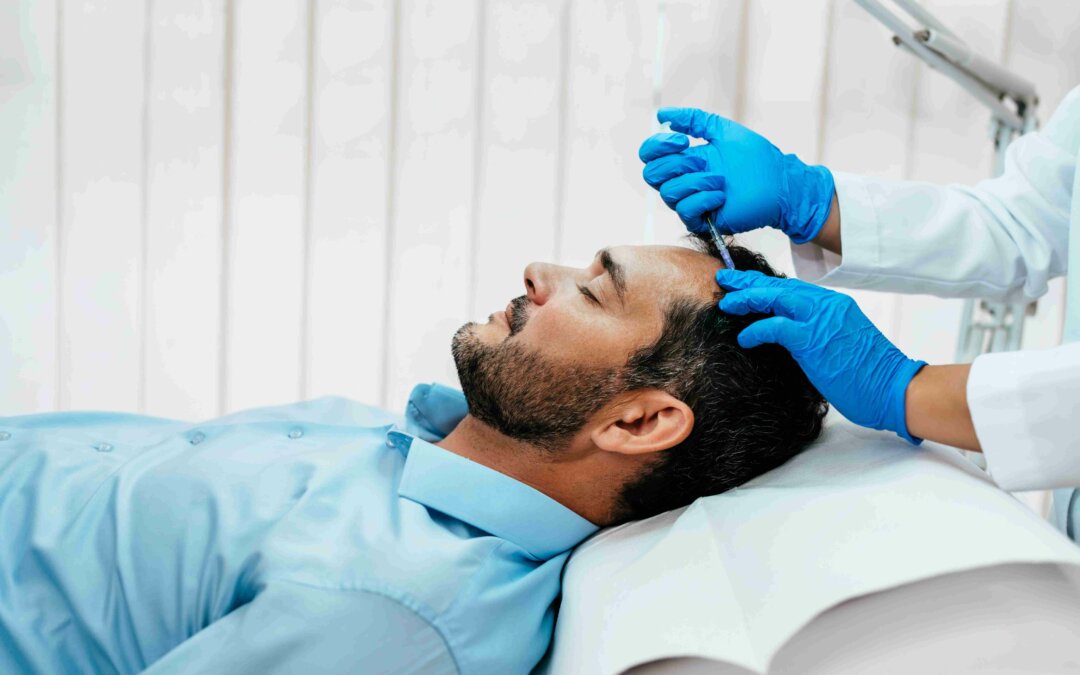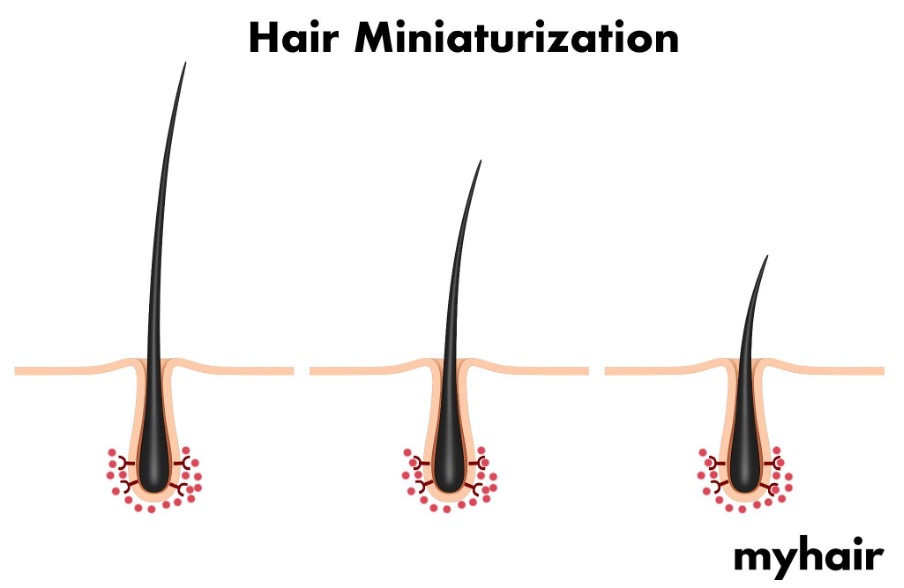Androgenic alopecia, or pattern hair loss, is the most common cause of baldness men experience. However, hair loss can also occur because of stress, dietary changes, or the way you treat your hair. It can also be associated with infections, chronic illnesses, or medications you’ve been prescribed to manage such conditions.
If you have male pattern baldness, a condition caused by a mixture of genetic and hormonal factors, you’ll require specific FDA-approved treatments in order to stop its progression. Most other types of hair loss can be prevented by staying healthy and making good lifestyle choices. The way you treat your hair and body can go a long way in helping you maintain your long, luscious locks.
Be kind to your hair and skin
It might sound obvious, but treating your hair and skin gently can go a long way toward preventing hair loss. Various hair care practices you might have grown up with or think of as normal are actually harsh on hair and can contribute to hair loss.
1. Moisturizing your hair helps prevent breakage
It’s a well-known fact that dry hair breaks more easily. The easiest way to prevent dry hair is by using a moisturizer. Whether it’s a daily conditioner or a weekly hair mask, moisturizing your hair regularly will help prevent split ends and hair breakage.
If you prefer all-natural products, you can try using coconut oil to moisturize your hair overnight. You might also want to consider incorporating other oils, like rosemary oil, into this type of leave-in mask, as a review in the Archives of Dermatological Research says that this essential oil has been able to promote hair growth.
2. Choose the right shampoo
Walk into any drugstore or supermarket and you’ll likely be overwhelmed by the quantity of shampoos available to you. However, only a few shampoos can help prevent hair loss. The right shampoo for you will depend entirely on your specific needs.
Some people like ketoconazole shampoo as it can counteract and prevent fungal skin infections. That’s not all it does, though. According to a study in the Dermatologic Therapy journal, it also has the potential to help counteract male pattern hair loss.
DHT-blocking shampoos are also a good choice if you’re trying to prevent the effects of androgenic alopecia but haven’t started experiencing symptoms yet. According to a study in the journal Fitoterapia, there are a variety of DHT-blocking ingredients, including saw palmetto, caffeine, and ginseng. You might find any or all of these incorporated into a DHT-blocking shampoo.
Finally, you also have the option of trying out newer products, like minoxidil shampoo. That being said, although minoxidil is an FDA-approved treatment for hair loss, there isn’t any clear research that shows that the shampoo version works the same way.
3. Keep your hair clean, but don’t overwash
If you get oily hair or a greasy scalp easily, or work out to the point of sweating each day, chances are that you want to wash your hair daily. However, most people don’t need to wash their hair every day. Overwashing can make your hair needlessly dry and contribute to breakage, especially if you have fine or fragile hair.
4. Brush hair the right way
In general, most people should avoid brushing hair when it’s wet. Why? Hair that’s wet tends to be more fragile and is consequently more likely to break than dry hair.
But there’s a catch: Straight hair should be brushed when dry and curly hair should be brushed when wet. Regardless, if you do brush your hair when it’s wet, always use a detangler or conditioner and a wide tooth comb.
5. Avoid tight hairstyles
Your parents might have loved braiding your hair when you were a kid, or pulling it back into a tight ponytail away from your face. Unfortunately, keeping your hair tied back in this way can actually contribute to a type of hair loss known as traction alopecia. This type of hair loss is particularly likely to affect your hairline. If you’re still a fan of these types of hairstyles today, you may want to reconsider and start wearing your hair loose more often.
Healthy body, healthy hair
You might not have realized it, but your overall health can have a huge impact on your hair. Your diet, alcohol consumption, and any health problems you’re experiencing can all affect your hair growth.
6. Illnesses can trigger hair loss
From high fevers to chronic illnesses like irritable bowel disease, a variety of different health problems can cause hair loss. You can’t prevent all illness, but staying as healthy as possible will have a huge positive impact on your hair.
In many cases, your body perceives physical illness to be a form of severe stress. As you recover from a serious illness, injury, or surgery, you might notice more hair shedding than usual. This type of hair loss, which Harvard Health Publishing says is known as telogen effluvium, causes diffuse hair loss around your head.
7. Bacterial and fungal infections cause hair loss, too
Skin infections can also cause hair loss. According to the book Hair and Scalp Disorders, several bacteria and fungi can affect your scalp and hair follicles. Pre-existing health issues like excessive sweating, diabetes, or immune system deficiencies can increase the likelihood of these problems.
Skin infections are often treated with oral medications, like antibiotics or antifungals, and certain topical products, like ketoconazole shampoo, can also help. Preventing this type of hair loss can be challenging. But if you know you’re at increased risk for a scalp infection, you should be particularly attentive to your skin’s health and wash your hair regularly. You should also avoid sharing haircare items, like combs and brushes, and even hats, since fungi can spread in this way.
8. Your mental health can affect your hair
When it comes to hair, your mental health is just as important as your physical health. You can also experience telogen effluvium from large amounts of stress or sudden shock, like a death in the family. Try to find healthy coping mechanisms that can help relieve your anxiety and stress, like going for a run, meditating, or journaling.
9. Watch out for certain medications
If you do get sick, keep an eye on the medications your doctor has prescribed. Harvard Health Publishing says that certain medications, including psychiatric medications, blood thinners, amphetamines, and blood pressure reducing drugs can all induce hair loss.
Fortunately, medication-induced hair loss is just a temporary side effect. Once you stop taking the medication, your hair should grow back.
If you need to keep taking those drugs over the long-term, talk to your doctor about switching to a different medication with fewer side effects. They might also suggest you start a hair loss treatment like minoxidil or low-level laser therapy to prevent further hair loss.
10. Consume a healthy diet
You’ve likely been told a million times that a well-balanced diet is important for your health – but it’s also essential for healthy hair growth. Many of the foods you eat contain essential vitamins and minerals that can help prevent hair loss and promote strong, long hair.
For instance, a study in the Dermatology and Therapy journal reported that iron, riboflavin (vitamin B2), biotin (vitamin B7), vitamin D, and zinc deficiencies can all lead to hair loss. Deficiencies in certain essential micronutrients can also change your hair color. Low levels of B-complex vitamins, vitamin D, iron, and selenium can lead to your hair turning gray prematurely.
If you want to lose weight, try to do so through exercise rather than crash dieting. Extreme calorie restriction can cause vitamin and mineral deficiencies.
If you need to diet as part of a nutritionist or dietitian-approved weight loss plan, you may want to consider taking nutrient supplements. People with malabsorption issues, which can occur for many reasons, including gastrointestinal conditions, surgery, or excessive alcohol consumption, may also want to consider taking a supplement.
Preventing androgenic alopecia
Since male pattern hair loss is due to a mixture of genetic and hormonal factors, it can be a little more challenging to prevent. A lot of people don’t even realize they’re balding until they start showing specific symptoms, like a receding hairline or hair loss at the top of their head.
A good diet, healthy scalp, and good hair care are still important. But in order to prevent androgenic alopecia, you’ll specifically need to take a preventative hair loss treatment, like minoxidil or finasteride. You could also use a device for hair loss, like a low-level laser therapy comb.
Minoxidil, finasteride, and low-level laser therapy are all FDA-approved treatments that can stop hair loss from getting worse and encourage new hair growth. This means that they’re not only able to prevent androgenic alopecia from progressing; they’re able to help hair grow back in the areas where hair has fallen out.
If you suspect you have male pattern hair loss, you should start a treatment as soon as possible. Treatments can take a few months to start working, so the sooner you start, the sooner you’ll stop seeing symptoms and get your hair back.
Takeaway
Many types of hair loss are preventable. At the end of the day, preventing hair loss has a lot to do with your lifestyle and hair care choices.
If you’re already experiencing the symptoms of male pattern hair loss, these strategies probably won’t be able to help you get your hair back: You’ll need a hair loss product like minoxidil, instead. Only an FDA-approved treatment for androgenic alopecia can help you stop male pattern hair loss from progressing. That being said, the other tips and strategies can still prevent hair loss from other causes and improve the quality of your hair.





